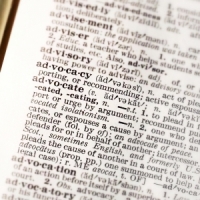Don’t Misuse These Words If You Want to Sound Intelligent

I have one of those vocabulary-boosting calendars that offers a new word for each day of the year. In addition to the date, each page presents the word, its definition, and an example of the word used in a sentence. It’s fun learning new words, but I don’t foresee a frequent need to use words such as hibernaculum, mumblety-peg, tog, netsuke, tragus, and grubstake, all words included in this vocabularium. More importantly, if I misused any of them, would you no longer except me as a professional?
Did you catch that? In the last sentence, I used except instead of the correct word, accept, and I did it deliberately to make a point. (I hope my eagle-eyed editor can resist the temptation to change it to accept.) Be forewarned: If you routinely misuse words such as these two, people you want to impress may start to see you as careless, if not uneducated and ignorant. Accept and except are among the most commonly misused words, along with affect and effect, capital and capitol, elicit and illicit, and principal and principle.
Even common, everyday words are often confused with each other, such as than and then, as well as their, there, and they’re and to, two, and too. These sets of words are homophones: words that sound alike but have different meanings. It’s easy to use the wrong one if, like me, your hands are busy typing but your head is somewhere else—which is why proofreading is essential.
But if you don’t actually know which word is the right one to use and you hope to advance in your career, you’d be wise to review lists that can help you figure it out. This is especially true of it’s and its; it’s imperative that you understand each of these words and its correct use. Get it?
Add to these misuses phrases that are used incorrectly. Consider, for example, the incorrect for all intensive purposes (try for all intents and purposes), it’s a doggy-dog world (which should be it’s a dog-eat-dog world), and should of (which of course ought to be should have).
And then there are made-up words that don’t even exist but are used as if they do. This list would include supposably, which should be supposedly, sherbert instead of sherbet, and irregardless where you mean regardless. (Note, though, that despite many articles that insist otherwise, this post insists that irregardless is indeed a word, even if a nonstandard one.)
A colleague of mine asked me to write a forward to his book. I may be forward in suggesting you avoid these common mistakes, but I’m pretty sure he wanted me to write a foreword. I was happy to accommodate.

